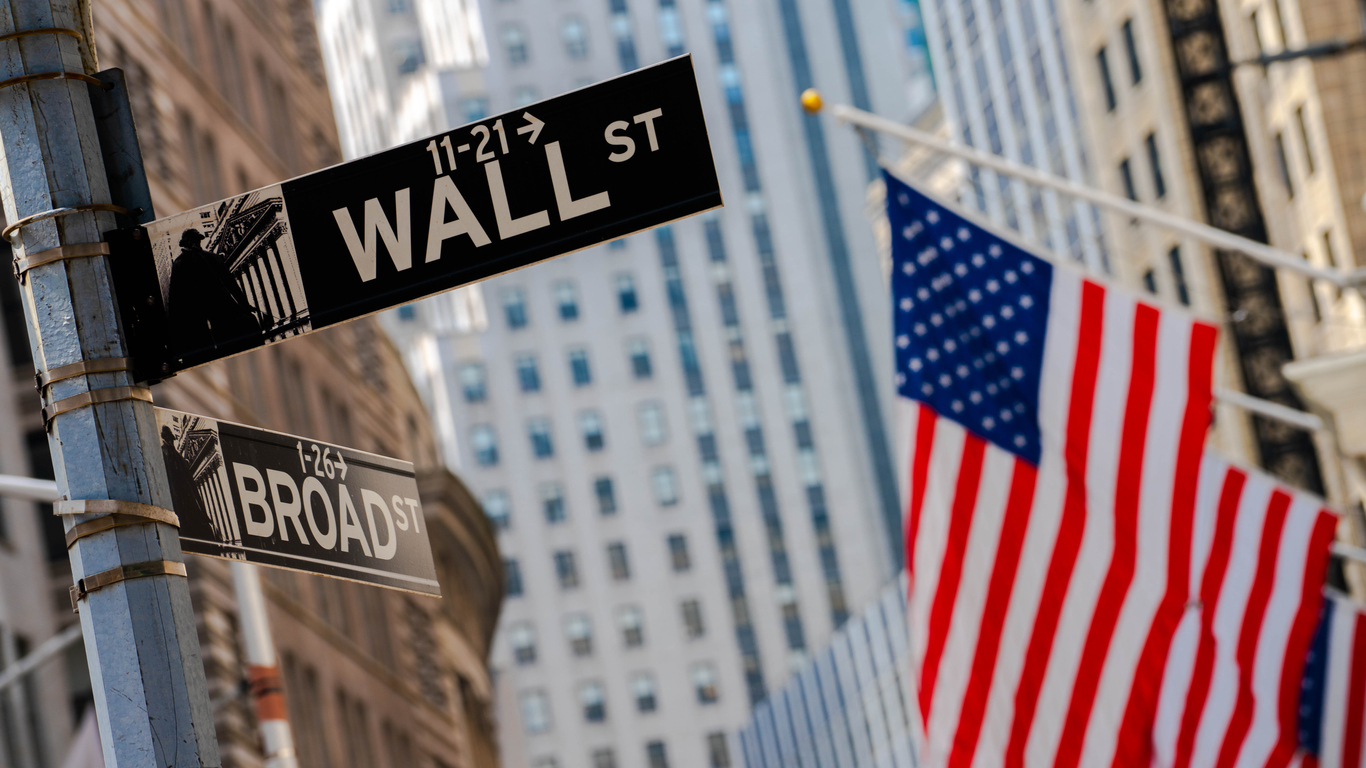It’s earnings season once more, offering a chance to see how the major banks have performed financially. Heavyweights JPMorgan, Citigroup, Wells Fargo, Goldman Sachs, and BlackRock will open their books on Wednesday, with Bank of America and Morgan Stanley following suit a day later. Investors have vaulted expectations: S&P 500 earnings overall are expected to rise almost 12% compared to the same time last year, which would mark the fastest growth since late 2021.
Now, a lot of people consider these banks’ releases to be the official start of earnings season, and this time around, they’re expected to steal the spotlight. After a standout 2024 where financials stocks jumped 28% – beating the S&P 500’s 23% return – investors are betting on a 40% earnings leap for the sector in the fourth quarter. And sure, the previous year’s low base for banks is likely to help the numbers along, but that’s far from the only thing driving the optimism.
Banks tend to benefit in a high-rate environment. Their “net interest margins” – the difference between what they earn on loans and what they pay on borrowing – are generally more favourable when rates are elevated. This dynamic is currently in place and may persist for some time. Throw in an expected rebound in dealmaking and initial public offerings, a potentially looser regulatory environment, some tantalizingly low valuations, and the fact that financial stocks remain surprisingly under-owned, and banks might just be 2025’s investing dark horse. That’s assuming, of course, that the economy stays on track, sentiment doesn’t sour and, crucially, that inflation fears don’t revamp.
On the calendar
- Tuesday: US PPI (December).
- Wednesday: UK inflation (December), US inflation (December), France inflation (December), eurozone industrial production (November). Earnings: Citigroup, BlackRock, Goldman Sachs, JPMorgan, Wells Fargo.
- Thursday: UK industrial production (November), Italy inflation (December), Germany inflation (December), UK economic growth (November), US retail sales (December). Earnings: Bank of America, Morgan Stanley, TSMC, UnitedHealth.
- Friday: UK retail sales (December), China economic growth (Q4), China industrial production (December), China fixed assets investments (December), China retail sales (December), US industrial production (December), US housing starts and permits (December).
What you might’ve missed last week
Global
- Global bond markets took a beating and yields soared to key levels.
- Bitcoin fell below $100,000, dragged lower by rising bond yields and market jitters.
US
- The US economy flexed its muscles again, creating way more jobs than anyone expected in December.
Asia
- China broke out even more new stimulus, but not enough to ease investors’ fears
UK
- UK 10-year borrowing costs hit the highest level since 2008.
- UK house prices dipped in December for the first time in nine months.
- Electric vehicle sales surged but still missed mandated targets in 2024.
- British retailer shares fell over fears about the slowing economy.
- Lender Shawbrook Group plans to list its shares in the first half of this year.
Why it matters
Persistent inflation, political uncertainties, and rising government debt weighed on markets last week, contributing to a bond selloff and pushing yields higher. US Treasury yields popped to near 5%, and UK and Japanese yields hit highs not seen in at least a decade. And although these higher yields hint at economic resilience, they’re no picnic for stocks. Higher interest rates tend to slow the economy, shrink the value of future profits, and make cash accounts more appealing than stocks. And they reflect real uncertainties on the outlook for inflation and interest rates.
Bitcoin slipped back below $100,000, reminding everyone just how closely it tracks stock vibes and easy money. Like tech shares, bitcoin rocketed after the Federal Reserve (Fed) hinted it was done hiking rates, sparking a sharp drop in borrowing costs and a boisterous rush into riskier assets. But last week’s jump in bond yields flipped the script: fearful sentiment and plumper returns on safer bets made bitcoin less tempting, prompting some investors to lock in profits. It served as a reminder that bitcoin tends to act more like a high-beta tech stock than “digital gold,” magnifying market movements and reflecting investors’ appetite for risk.
In some ways, the US economy’s not doing just fine, it’s thriving. The latest monthly job report revealed stronger-than-expected hiring and a dip in the unemployment rate, blunting talk (at least for now) about a coming recession. That marked the 48th straight month of job growth in the US, tying for the second-longest streak in history. And it wasn’t just those 256,000 new jobs and the new 4.1% unemployment rate turning heads last week: a key gauge of US services industry activity hinted that the heavyweight economic sector is likely to continue its steady expansion. Plus, data from earlier in the week showed 8.1 million job openings in November, proving demand for workers is still resilient. Stocks initially plunged Friday after the stellar jobs report, as the strength of the job market dashed hopes for further interest rate cuts from the Fed. And that’s a pointed reminder that good news for the economy isn’t always good news for markets.
China rolled out yet another round of economic stimulus last week, aimed at getting its consumers spending again. The latest measures included new subsidies on home appliances and electronics and an extension of trade-in incentives for electric and hybrid car purchases. The government’s cautious, step-by-step approach marks a departure from its previous, debt-driven growth tactics, and some worry it won’t be enough to stave off a deeper crisis. Weak consumer confidence, a property crisis, and sluggish business activity are dragging prices down and spooking would-be investors. And there’s a major fear factor at play too: the potential for a Japan-style “balance sheet recession,” where businesses prioritize paying off debt over spending, potentially locking China into years of weak growth and deflation.
The 10-year gilt yield climbed to 4.89%, its highest level since 2008, as bonds sold off across the world, increasing the cost of borrowing. Despite higher yields, the pound fell in value against the dollar. Low growth, high levels of public debt, a flatlining economy, and sticky inflation increase the risk of tax increases and public spending cuts.
UK house prices fell 0.2%, in December on the previous month, undershooting economists’ 0.4% growth expectations and marking the first contraction since March, according to the Halifax. Although prices were still 3.3% higher than in December 2023, the slowdown indicates that recent rises in mortgage rates may have started to weigh on the housing market.
Increasing concerns about the slowdown in the economy hit shares of retailers like Tesco and Marks & Spencer. The impact of the government’s tax-raising budget and the rise in national insurance contributions from employers will directly hit their profits.
New passenger car registrations slipped 0.2% in December, but EV sales accounted for 31% of sales and jumped nearly 60% versus the same time last year. Automakers kept slashing the prices of plug-in models to meet mandated sales targets and avoid fines. 2024 saw a 2.6% rise in new car registrations, marking a second consecutive year of growth, and EVs reached a record annual market share at 19.6%, but below the 22% target.
The owners of Shawbrook Group are working on plans to list the UK lender in London in the first half of this year. The initial public offering could value the mid-tier bank at more than £2 billion. BC Partners and Pollen Street Capital led a consortium that acquired the firm in 2017 in a deal valued at £861 million.
Important Information
This publication has been produced with Finimize. As with all investing, your capital is at risk. Forecasts are never a perfect predictor of future performance, and are intended as an aid to decision- making, not as a guarantee. This publication does not contain and should not be taken as containing, investment advice, personal recommendation, or an offer of or solicitation to buy or sell any financial instruments. Prospective investors should seek independent financial, tax, legal and other advice before making an investment decision.
Your capital is at risk. If you choose to invest, the price and value of any investments and any income from them can fluctuate and may fall. So you may get back less than the amount you invested. Past performance is not a guide to future performance.
*As with all investing, financial instruments involve inherent risks, including loss of capital, market fluctuations and liquidity risk. Past performance is no guarantee of future results. It is important to consider your risk tolerance and investment objectives before proceeding.





